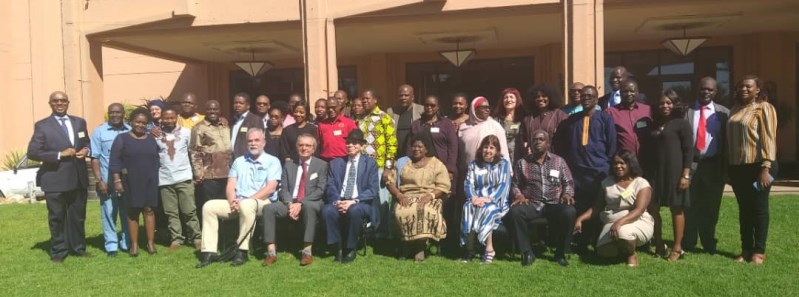
"Social protection is too vital for many people; it is not a luxury, too many people are deprived of this RIGHT" – Kwasi Adu Amankwah
"Social protection is not a matter of charity, it is a RIGHT which should provide social justice and restore the dignity of ALL – Minster of Poverty Eradication and Social Welfare" – Dr. Zephania Kameeta
The quotes by the General Secretary of the AFRICA Regional Office of the International Trade Union Confederation (ITUC-Africa) and the Minister of Poverty Eradication and Social Welfare, Namibia at the opening of the Seminar on ‘Innovative Ways in Financing Universal Social Protection Floors: Policies, Programs and Practical Examples’ highlight the core of discussions at the ongoing Seminar in Windhoek, Namibia.
This Seminar is jointly organized by the Africa Labor Research Network (ALRN); the Friedrich Ebert Stiftung (Zambia office); and the Labor Resource and Research Institute (LaRRI) under the FES-Zambia Rights Based Social Protection Project.
The Rights-Based Social Protection Project promotes the expansion of social security systems in Sub Saharan Africa through rights based and legally enforceable national policies in correlation to AU and UN instruments. FES-Zambia works with a number of partners to achieve the objective of the Project. These partners include the Africa Labor Research Network (ALRN); the Africa Platform for Social Protection (APSP); Women in Informal Employment: Globalizing and Organizing (WIEGO) and the ITUC-Africa.
The 2 day Seminar is taking place from 2 - 3 May and is bringing together a mix of about 40 participants from the ALRN, ITUC-Africa, APSP, International Organizations including the ILO; Government Institutions in Namibia including Ministry of Poverty Eradication, Ministry of Labor, Social Security Authority, as well as civil society organizations including the Africa Disability Alliance, SASPEN and the Alliance for Zambian Informal Economy.
The main objective of the Seminar is essentially focused on sharing experiences, best practices for possible replication and facilitation of knowledge exchange for purposes of networking across like-minded stakeholders on the continent
.
“The time is now when the world is faced with so much economic, social, environmental uncertainties that it is important to act NOW to achieve a universal rights-based social protection program for ALL!” – Minster of Poverty Eradication and Social Welfare – Dr. Zephania Kameeta
Guided by the words of the Minister of Poverty Eradication of Namibia in his closing remarks, the Seminar is geared towards establishing the following outcomes:
a) Increased understanding of existing policies, programs and examples of innovative ways in financing universal social protection floors;
b) ALRN position on how to achieve rights based social protection through a combination of sources including domestic resource mobilization established;
c) Seminar report serving as a basis for building an advocacy agenda for innovative ways of financing social protection floors at national and regional level produced
ALRN looks forward to working together with the FES-Zambia as well as the other partners of the Rights-Based Social Protection Project to reaching the defined outcomes of the Seminar.
The conclusions of the Seminar will further be disseminated with the wider public.
Article by Rhoda BOATENG
